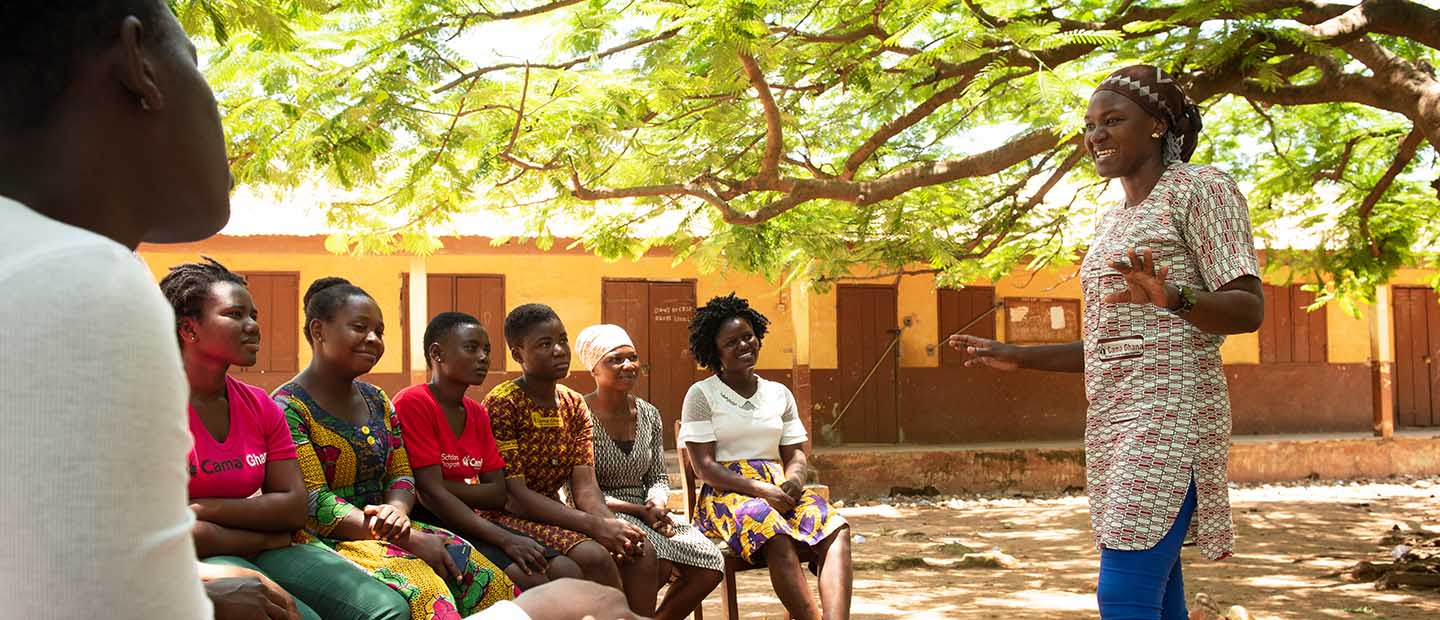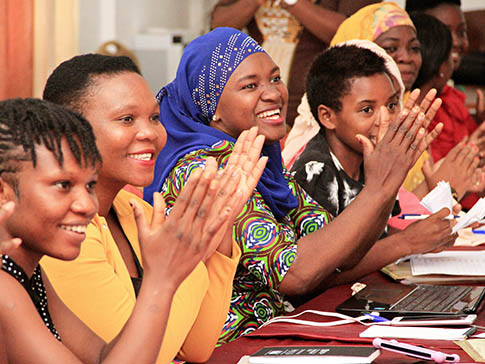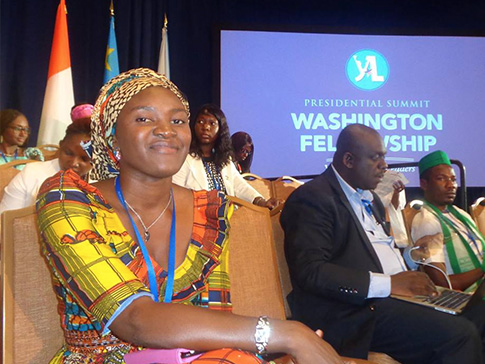
CAMA inspires on Women’s Equality Day 2018

Sunday 26 August marked Women’s Equality Day in the U.S. and around the globe.
The day is an annual commemoration of a march held in 1970, when CAMFED partner Gloria Steinem and other prominent feminists addressed a crowd of 50,000 supporters of equal opportunities in New York. In 2018, the 120,000 members of CAMFED’s alumnae association, CAMA, continue this legacy, promoting female leadership and breaking down gender norms in their rural African communities. In a recent interview, Ruka, CAMA’s National Chair for Ghana and a successful poultry entrepreneur, told us about her work for women’s equality:
For me education is the one tool that gives young women presence. Which is key, because you need to be present in order to be able to use your voice.
Ruka, CAMA National Chair, Ghana
Q:How does it feel to be the National Chair of CAMA Ghana, leading 23,660 young women change-makers?
Ruka: CAMA… we are all about leading female empowerment. Wherever we go, everything [on our agenda] has to do with the female. We’re fighting for education, fighting for equal opportunity, equal jobs, everything.
Being at the head of it all, there’s so much pressure but also so much excitement. To be the face of that network that is moving and doing everything that we can to make sure that women get the opportunities they need to break barriers and break out of poverty.
Q:What does CAMA mean to you?
Ruka: CAMA has been the greatest thing that happened to me. CAMA gives me the sisterhood I need, the confidence I need. So wherever I go, I’m not afraid to stand up because I know I have over 23,000 sisters behind me. When you belong to the network and you feel the bond that we share, it just gives you fulfilment.
I’ve stood before traditional leaders, that alone I could not have faced. But to go to them and I tell them that I am from the CAMA network, and this is what we want to do – because of that, these leaders work with us and even count on us. They see us young women and the things we are able to do. The way we are able to engage the communities and help them to understand issues about conception, contraception, education and why it is good for them to encourage girls’ education. They themselves are amazed.
“CAMA has helped me to find myself, find my voice and be able to reach out and help others.”

Ruka (purple headscarf) with other CAMA members at the 2018 CAMA Leadership Summit. (Photo: CAMFED/Joseph Assah Mills)

In 2014, Ruka was invited to the Presidential Summit at the White House where she was recognized as a Mandela Washington Fellow for her entrepreneurship and community activism. (Photo: CAMFED)
Q:Why is girls’ education so important?
Ruka: Rural girls – even when they are kids – they are the ones doing everything; taking care of the men, the house, everything. So if they are able to go to school, they are able to come out and get very good jobs. They become the backbone of the family. I have seen it, I am one of those young women. There are a lot of other CAMA young women that I know who fulfil that role.
